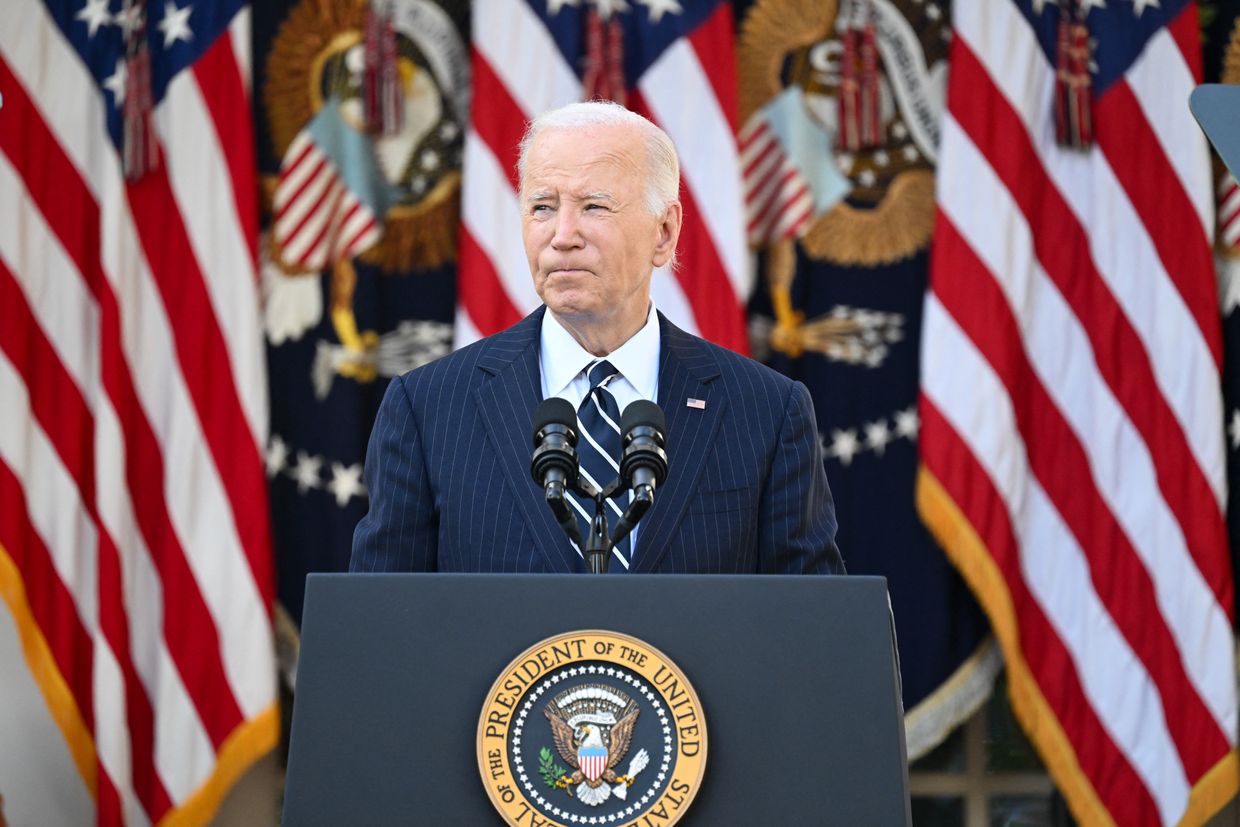Biden to urge Congress to send more Ukraine aid in last days of term, Sullivan says

U.S. President Joe Biden will appeal to Congress for more aid to Ukraine in the final 70 days of his term, White House National Security Adviser Jake Sullivan said in an interview with CBS News on Nov. 10.
Biden will leave the White House on Jan. 20, 2025, when U.S. President-elect Donald Trump officially takes office. Trump's presidency may radically alter Washington's policy toward Ukraine and Russia.
"President Biden will have the opportunity over the next 70 days to make the case to the Congress and to the incoming administration that the United States should not walk away from Ukraine, that walking away from Ukraine means more instability in Europe," Sullivan said.
Sullivan said Biden would urge lawmakers to provide "ongoing resources" to Ukraine but declined to give details about what those resources would include.
The Biden administration has already committed to sending Kyiv the remaining $6 billion in allocated military aid before Trump's second term begins. Sullivan said those funds would be sent "on time and in full" before Jan. 20.
When asked about the White House's strategy to "Trump-proof" Ukraine's defense, Sullivan said the administration was not planning to change its fundamental strategy.
"(O)ur approach remains the same as it's been for the last two and a half years, which is to put Ukraine in the strongest possible position on the battlefield, so that it is ultimately in the strongest possible position at the negotiating table," he said.
Ukraine has long urged the U.S. to lift restrictions on the use of long-range American weapons against targets on Russian soil and to seize frozen Russian assets, redirecting those funds to Kyiv's defense. Biden has the opportunity to take these steps, but with only a few weeks left in office, the window for action is closing.
Sullivan did not mention any of these measures in his interview with CBS News. He did say that Russia was feeling the impact of "biting" U.S. sanctions, which he described as contributing to rising inflation and economic stagnation in the country.
"(T)he picture for Russia looks increasingly bleak as time goes on," he said.
Regarding Moscow's escalating military cooperation with Pyongyang, Sullivan said he didn't know what Russian President Vladimir Putin had promised North Korean leader Kim Jong Un in exchange for North Korean troops fighting on the ground against Ukraine.
"We don't know for sure, and frankly, I think Vladimir Putin doesn't know for sure," he said.
"I think he probably hasn't decided exactly what he's going to do for North Korea on a going forward basis."
The New York Times reported on Nov. 10 that Russia is preparing to launch an offensive in Kursk Oblast with a force of 50,000 soldiers, including North Korean troops.












